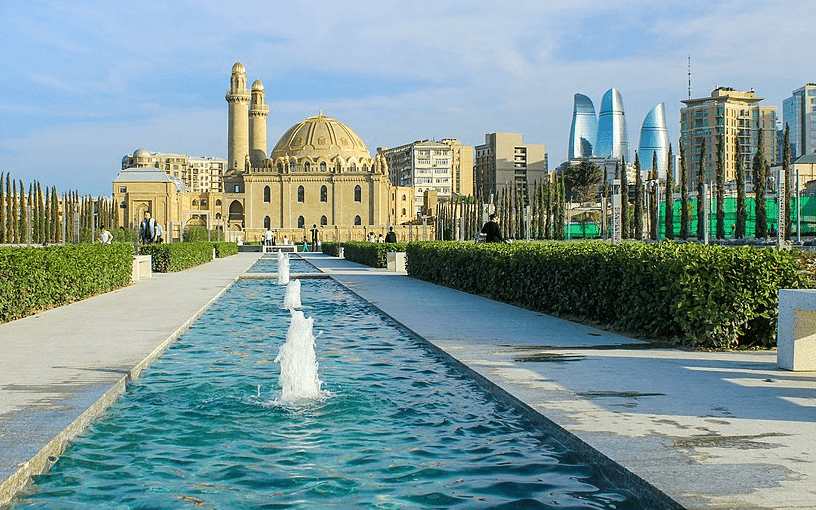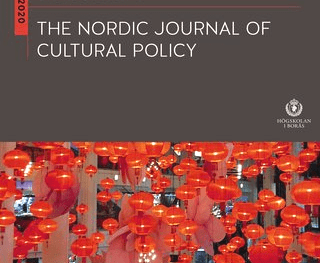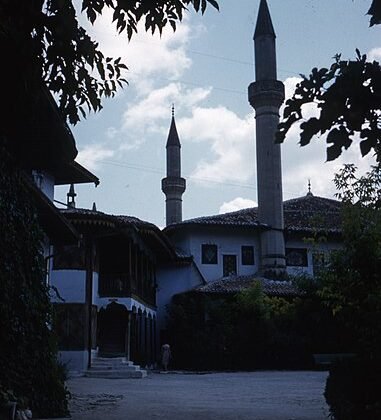(PONARS Eurasia Policy Memo) The Azerbaijani authoritarian regime tends to view any independent group as a threat that needs to be marginalized, if not suppressed. This works for secular civil society organizations as well as for so-called non-traditional Islamic groups, all of which are seen as leading factors that significantly endanger the regime’s stability and legitimacy. To this aim, the authorities are continuously developing and expanding their religious policy to counter and limit the influence of unwanted religious groups. Today, most political prisoners in Azerbaijan are locked up due to their religious beliefs and/or association with undesirable groups.
Lately, the government has been promoting “Traditional Islam” as a mainstay against different religious entities that it portrays as non-local, non-traditional, and non-relevant to Azerbaijani culture and norms. By now, the government controls the majority of clerics’ appointments, mosques, and theological teachings. Although these cooptation policies appear to have reduced Islamist propaganda, the strong efforts of the central authorities will always be challenged by the country’s diversified Islamic landscape and the spread of so-called non-traditional groups.
Constructing Traditional Islam
The Traditional Islam discourse was developed and promoted by the State Committee on Work with Religious Groups (SCWRG). According to the deputy head of the Committee, Gunduz Ismayilov, its notion of Traditional Islam was forged during the long history of the Azerbaijani people. It upholds the principles of Islam, such as the Quran, Hadith, and Sharia, but also contains traditions, family structures, behavioral norms, and customs that are said to be unique to Azerbaijanis.[1] In keeping with this discourse, the government defines Traditional Islam as a local, non-political, and anti-fundamentalist religious paradigm that aims to protect the secular nature of the state. This blurry definition of Traditional Islam is due to the heterogeneity of the country’s religious landscape. There are no reliable statistics, but it is commonly thought that 60-65 percent of the population are Shia Muslims and the rest are Sunni. Almost all Azerbaijani Shias belong to the Jafari school and the dominant Sunni groups are Shafi and Hanafi.
The only legitimate religious umbrella organization, the Board of Muslims of the Caucasus, includes both Shia and Sunni clerics in its leadership; the Sheikh-ul-Islam (spiritual head) is generally Shia and his first deputy Sunni. Sunni clerics in the Board are from both the Hanafi and Shafi branches. Despite serious differences regarding specific theological matters, members of the Board co-exist, and Sunni clerics accept the coordination of the Shia Sheikh-ul-Islam. This can be explained by the secular nature of the Board, which the government supports financially and politically.
Traditional Islam is constructed to reject the legitimacy of groups of foreign origin, even if they share the same religious schools as traditional ones in Azerbaijan. For instance, Turkish-origin groups such as Nurchular, Suleymancilar, and others from the Nagshi tariqas (schools) are of Hanafi origin, but the government considers them to be non-traditional. The number of Salafists has recently increased dramatically, but they are not considered part of Traditional Islam and therefore are not represented on the Board. The government positions Salafis as a threat not only to state security but also to Azerbaijani identity. For instance, most Salafis refuse to celebrate the Nowruz holiday, which plays an important role in Azerbaijani culture. They perceive it as a legacy of Zoroastrianism and even criticize the preparation of special pastries such as shekerbura, baklava, and gogal that symbolize the holiday.
The government’s strategy to label religious organizations “traditional” and “non-traditional” is thus not to determine which Islam is true but to preserve what it sees as a reasonable status quo in an open religious market that would not challenge the regime’s legitimacy. Traditional Islam is therefore promoted to try to ward off the politicization of Islam by potential oppositionist groups.
Ismayilov has, for instance, specified that Traditional Islam formally rejects the politicization and division of Islam into sects. To prevent the politicization of religious believers, Traditional Islam promotes individual religious feelings and refuses any form of collective organization in the name of religion that would threaten the state’s autocratic structure. For instance, the Azerbaijani government accepts Sufi teaching as a part of Traditional Islam but does not support the revival of tariqas (Sufi brotherhoods). Indeed, with its top-down hierarchical structure and strong in-group loyalty among members, Tariqas could potentially challenge the regime as an independent oppositionist force. Almost all tariqas, even those that have historical roots in Azerbaijan, are now associated with neighboring countries, and with Turkey in particular.
Politics and Policy of Traditional Islam
According to the Article 48 in Azerbaijan’s constitution, the government does not have a right to intervene in religious affairs, even if state structures have been increasing their intervention in religious issues while preserving their secular character. According to the Law of the Republic of Azerbaijan on Freedom of Religious Belief, the Muslim Board of the Caucasus is held responsible for all mosques and for Islamic education. The Board is officially a non-governmental organization and its clerics are not civil servants.
To increase the influence and impact of Traditional Islam, the government implemented a series of measures. For instance, it began to take initiatives to restore old mosques and construct new ones. As a matter of fact, it has been difficult for private, local, or foreign initiatives to get permission from government bodies to construct new mosques. The government perceives independent initiatives to construct the mosques as attempts to launch alternative, competitive religious discourses. In the 1990s, some mosques were built or restored by private individuals or with the support of foreign organizations and governments such as Iran, Turkey, and Arabic countries. Now, this type of support is no longer allowed, and the vacuum has been filled by the Heydar Aliyev Foundation, which paid to restore and construct mosques featuring government-approved architecture. The monopolization of mosques allowed the state to get full control over places that regularly convene thousands of people for daily prayers.
The Azerbaijani government also demonstrates its goodwill toward Islamic values by sponsoring celebrations of anniversaries of historical religious figures. For instance, in 2013, the Heydar Aliyev Foundation worked with UNESCO to declare 2013 the Year of Yahya Bakuvi, a prominent member of the Khalvetilik Tariqa, which originated in Azerbaijan before spreading to the rest of the Islamic world. Another example is when the president declared 2017 to be Islamic Solidarity Year, and the Islamic Solidarity Games were hosted in Baku. President Ilham Aliyev also created the Moral Values Promotion Foundation that allocates stipends for imams and akhunds of mosques who lack official monthly salaries. The Foundation also sponsors seminars on Traditional Islam throughout the country.
Last but not least, the government funded the creation of the Baku Theology Institute. It hopes to incentivize good students to enroll, thereby producing high-quality imams trained in a government-approved institution while reducing enrollment in competing institutions in Iran, Saudi Arabia, and Turkey. There are two other higher theology education institutions in Azerbaijan, the Theology Faculty of Baku State University and the Islamic University of the Board of the Muslims of the Caucasus. Despite the activities of these universities over almost three decades, none of them was able to educate prominent religious scholars recognized by the broader religious population. Almost all popular religious scholars received their education abroad. With the creation of the Baku Theological Institute, the Azerbaijani government has become more involved in the education of new religious thinkers, hoping to diminish the supposed negative impact of foreign influences on Azerbaijan’s increasingly religious population.
Conclusion
Under the banner of Traditional Islam, the secular authorities in Azerbaijan have been actively striving to establish an alternative, mainstream, moderate, and dominant Islamic narrative that is institutionalized and controlled by the state. As a result of this drive, the government managed to take control of most functioning mosques. Imams have been selected from among reliable people and their lectures are pre-approved. A number of new theological books have been published. According to officials, these activities have led to a dramatic drop in the level of Islamic propaganda and radicalization.
Indeed, through the implementation of administrative, law-enforcement, and educational measures, the government conditionally took control of the religious market and partly neutralized any threat against its autocratic structure. Yet, despite the government’s enthusiastic approach to constructing a fully functional Traditional Islam, there are some factors that impede its success.
First, the heterogeneity of Islam in Azerbaijan with its three main groups (the Turkey-originated Sunnis and Salafists, and the Iran-originated Shia) allows for disagreement on a number of theological issues. It will forever be a challenge for a secular autocratic state to force them to be united under one, unified, institutional umbrella. Second, various non-traditional religious leaders continue their preachings (via social media) and attend events organized by their friends and followers. Finally, despite governmental endeavors, new and approved clerics have not risen in the ranks of popularity, and the majority of believers have not fully embraced the principles of Traditional Islam.
Ceyhun Mahmudlu is Visiting Professor at Cornell University.
[PDF][1] Interview with the author, June 2018.











